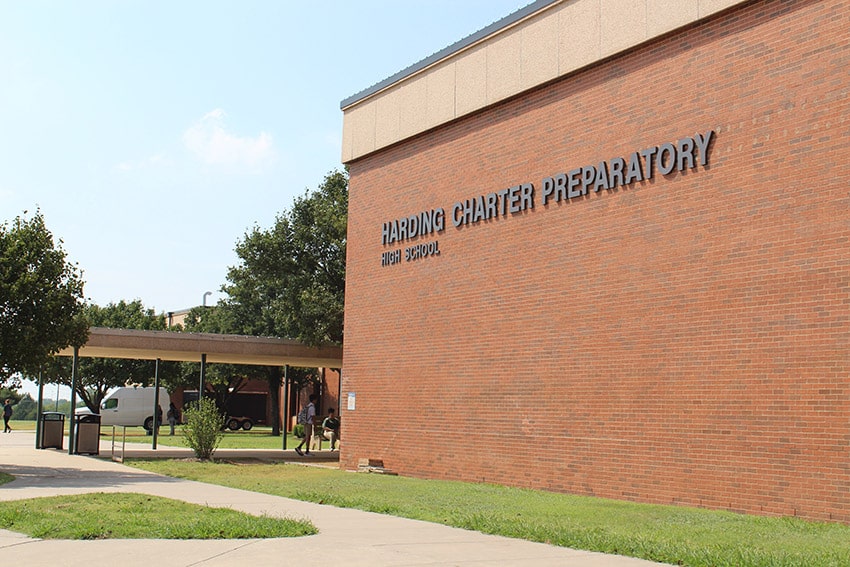The Southern state of Oklahoma approved the first denominational charter school in June: St. Isidore of Seville Catholic Virtual School. The decision has given rise to conflicting opinions, as some question whether it follows the Constitution’s stipulation of separation of Church and State.
According to Quartz, Oklahoma’s Statewide Virtual Charter School Board decided in favor of the school’s approval in a close 3-2 vote in what constitutes an unprecedented case. Charter schools, a type of school that has existed for three decades in the U.S., are independently run educational centers integrated into the public school network and financed by public tax dollars. Their nature offers them greater autonomy when it comes to teaching styles.
Charter schools garner a wide array of support from many in the education sector, parent associations, NGOs… However, what’s different about the online Oklahoma school that is slated to open in the fall of 2024 is that, until now, there has never been a religiously run charter school. For state Governor Kevin Stitt, the approval marks a “win for religious liberty and education freedom.” He added, “I am encouraged by these efforts to give parents more options when it comes to their child’s education.”
However, more than an opportunity, many others see the so-called “win” as the state government’s violation of the secularism of the public space.

Controversy breaks out
The idea of St. Isidore of Seville Catholic Virtual School came about during the pandemic, when the Catholic Conference of Oklahoma – which was founded by the state’s Catholic bishops – explored the possibility of offering virtual classes to prevent learning gaps triggered by confinement among young children and students in rural areas, where the only education option was conventional public schooling.
The initiative, however, was deemed unconstitutional by state Attorney General Gentner Drummond, who voiced that “the approval of any publicly funded religious school is contrary to Oklahoma law and does not benefit taxpayers. It is extremely disappointing that Board members have violated their oath to fund religious schools with our tax dollars. In doing so, they have exposed themselves and the state to potential legal action that could be costly.”
The Constitution’s Free Exercise Clause “protects religious observers against unequal treatment”
Americans United, the only organization in the country dedicated solely to defending the separation of church and state, is already preparing legal action, per a statement on the group’s website. “It’s hard to think of a clearer violation of the religious freedom of Oklahoma taxpayers and public-school families than the state establishing the nation’s first religious public charter school,” it reads. AU will “work with our Oklahoma and national partners to take all possible legal action to fight this decision and defend the separation of church and state that’s promised in both the Oklahoma and U.S. Constitutions,” the statement continues.
The case, however, may not be so clear cut. Although, in effect, the Constitution prohibits the government from funding any religion, in situations like this it could be interpreted that the public funds are allocated not to the Church, but to the education of children in a Catholic school. In 2022, the U.S. Supreme Court ruled that Maine could not exclude religious schools from a state tuition assistance program in rural towns where there were no public high schools because it violated the First Amendment’s Free Exercise Clause, which “protects religious observers against unequal treatment.”
“Where do you draw the line?”
Regarding the negative picture painted by the initiative’s detractors, the executive director of the Catholic Conference of Oklahoma, Brett Farley, told Aceprensa that the most difficult part of this process has been dealings with the Attorney General and groups that have made their opposition to this institutional innovation public over the last two years.
According to Farley, the decision to approve the Catholic charter school is in line with the Free Exercise Clause, which is, he stresses, a protection for all forms of private participation in public programs.
“Public dollars currently go to all kinds of religious institutions, whether they’re education institutions in the form of tax credits, or vouchers, or something like that, but also hospitals and all kinds of religiously sponsored public benefit institutions,” Farley told CNN. “FEMA relied heavily on Catholic Charities, Baptist relief services, and all sorts of things, and so that’s just a long tradition in American history. So to suggest that somehow this is anathema and unconstitutional is to pose another question … where do you draw the line?”
Regarding the new online school, Farley tells us that it will open new doors in the world of education. “Obviously, we can’t build brick-and-mortar schools across the state, but what we can do is partner with the state to meet the educational needs of every child,” he noted.
Translated from Spanish by Lucia K. Maher
